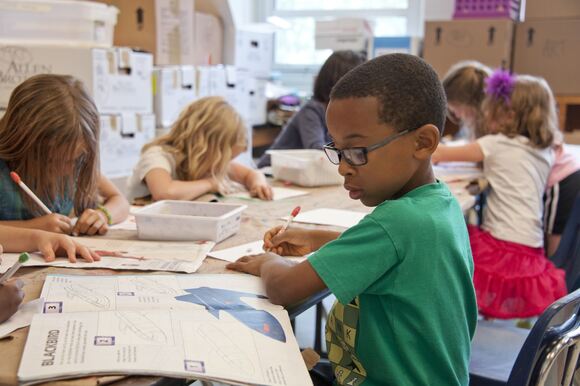7 Things Your Town Can Learn From Blairville’s Approach To School Bullying
Bullying is an unfortunate part of society and is seen in almost all aspects of society. While it has a certain effect when performed by adults in a workplace, it can be particularly harmful to children… primarily when it occurs in a school setting. Nonetheless, it remains a persistent menace that most jurisdictions and institutions have been unable to eliminate entirely from their schools.
However, one city has managed to develop a holistic approach to school bullying that has proven to be somewhat of a success. This article will highlight seven things you can take away from their approach to bullying, hopefully enabling your town to reduce or even eliminate it as much as possible. It will also include some general tips on how you, as a parent, can keep your children safe from the harmful effects of harassment and give you peace of mind that they will not become victims or perpetrators of harassment.
Develop And Enforce Clear Anti-Bullying Policies
As the King said in Alice in Wonderland, “Begin at the beginning,”! While this might sound slightly facetious, perhaps the first and most effective strategy any town can take is to develop its own anti-bullying policies and take measurable steps to enforce them. Lots of towns like Blairsville have taken a proactive step in this regard, meaning that families moving to Blairsville should be assured their children will be secure from the effects of bullying. However, many towns and school administrations will view this advice as having a meeting and creating a small list of points that need to be followed. However, if you want your policy to be effective, it must be wide-ranging, compassionate, and delve into the core issues that have made bullying so pervasive. An actionable and effective policy must include the following elements (some of these are discussed in more detail later):
- Establish a zero-tolerance policy toward bullying
- Develop strategies to prevent bullying before it occurs
- Ensure all staff are trained to recognize the signs of bullying
- Provide education on the effects of bullying
- Utilize restorative justice practices
- Create a system of consequences that is both consistent and fair
Furthermore, you must ensure that all stakeholders are aware of your new policy and take proactive steps regarding its enforcement. While your town must establish what it considers fair punishment, it could range from a slap on the wrists for minor infractions to the risk of job loss or expulsion for repeat offenders.
Educate Students, Teachers, And Staff About Bullying Prevention
While creating a policy is a significant initial step, it will be rendered moot without the proper education. School administrators must prioritize getting all relevant stakeholders to know about the procedure and what actions each individual must take.
- Students: Due to their nature, students need frequent explanations regarding bullying, including the consequences if they are bullies and the support they can receive if they are victims. You can set up a daily or weekly assembly and hammer home these points at the start or end of the meeting.
- Teachers: Educators must learn how to spot the signs of bullying and have an understanding of how to confront the bully and help the victim. This is trickier than it sounds, so you might want to hire outside help to support your teachers, particularly regarding the growing but esoteric threat of cyberbullying.
- Staff: Bullying isn’t only limited to student-on-student interactions. It can happen in almost any workplace, including between staff members of the school itself. By letting everyone know what kind of recourse they have, you can encourage a less toxic environment.
Encourage Open Communication Between Students, Parents, And School Administration
If open communication is not fostered in your institution, bullying will become more prevalent and begin to fester. This makes it more challenging to confront when you finally choose to get a handle on it. Therefore, you should encourage communication among all facets of your school, from the students to the governing bodies. By enabling all participants to speak freely (within the bounds of good taste), you can understand where the problems are emerging from and take preventative or corrective action. Depending on your current status, this could involve a massive overhaul of how you do things. Nevertheless, the first step is to have an open-door policy where students and teachers can easily find the right people to speak to without hindrance or delay.
Implement Proactive Measures Such As Peer Support Programs And Conflict Resolution Training
Bullying takes many forms and can be hidden as well as in plain view. Regardless of how it is conducted, you need to take proactive measures to nip it in the bud if you want to eradicate it from your school. This could be in the form of peer support programs, religious events that teach compassion to your fellows, and confit resolution lessons.
Provide Ongoing Training For Teachers And Staff To Recognize And Address Bullying Behavior
Something as serious as bullying is not a static event, and you can’t expect it to disappear by simply creating a policy and leaving it be. Instead, you must ensure that all staff training is ongoing and encapsulates the entire spectrum of bullying, from the obvious to the less so, such as cyberbullying. Only by doing this can you slowly rescue the insidious effects that bullying has on everyone involved.
Take Reports Of Bullying Seriously And Respond Promptly With Appropriate Disciplinary Action
If your school is a passive receiver of bullying reports and opts to take things at a more sedate speed, you will quickly discover all other aspects of your anti-bullying policy will fall apart. You need to take all reports, regardless of severity, seriously and endeavor to follow through on threats of disciplinary action. This could involve a multi-step process of punishment that becomes increasingly more serious as the threats increase in number, severity, or both.
Continuously Evaluate And Adjust The School’s Approach To Bullying Prevention
Over the last 20 years, bullying has changed dramatically, and institutions that fail to keep pace risk having all their hard work become irrelevant. Consweutnly, you must take a proactive approach to the subject and attempt to keep up with how the world is changing. For instance, cyberbullying simply didn’t exist 20 yeast ago, but it’s now one of the most significant threats to students worldwide. Moreover, as students gain access to an ever-increasing amount of data, including misinformation, new threats will emerge that could begin to divide students along political and religious lines like never before. If you don’t take this seriously, you risk your school falling into chaos.
How You Can Prevent Your Child From Becoming A Victim Or Perpetrator Of Bullying
The actions taken by a school or district are only one part of the equation, and as with most things, compassionate education starts at home. Therefore, as a parent, it is your responsibility to be there for your child when bullied, teach them how to avoid becoming victims, and take corrective action if your child appears to be bullying others.

Teach Your Child To Respect Others And Be Kind To Everyone, Regardless Of Differences
As the nation becomes increasingly divided along various lines of thought, it is more essential than ever to teach compassion and kindness regardless of differences of opinion, views, or race. In spite of the fact that your child’s school should be doing this already, real one on one compassion can only be taught by parents. Although it can be difficult to see past some differences, you need to be a role model to your child and tell them that while they might not always agree with another point of view, they must respect the fact that everyone is different.
When Your Child Witnesses Bullying, Encourage Them To Speak Up And Report It
It is vital to not only be there for your own child, but you must also educate them on the importance of reporting bullying when they see in occurring. By ingraining this responsibility from a young age, you can encourage them to do the right things when the opportunity arises. They don’t have to get involved directly with the issue and risk their own reputation or physical well-being. Still, they should be confident they can report it anonymously to higher authorities before things get out of hand.
If Your Child Is Being Bullied, Teach Them To Stand Up For Themselves Appropriately
This tip can be slightly contentious, especially if you don’t teach them the correct ways to stand up for themselves. You shouldn’t take this advice as constituting fighting back, but you must tread the line carefully between teaching your child to be too passive or aggressive. You don’t want them to get in trouble, but they must also know when and how to stand up for themselves. One option could be enrolling your child in a martial arts school where they will learn conflict-resolution skills and techniques to subdue even the nastiest bullies.
Monitor Your Child’s Behavior And Intervene If You Notice Any Signs Of Bullying Or Aggressive Behavior
Most parents don’t want to hear it, but there might come a time when their child is the bully, and they need to take corrective action to stop it from spiraling out of control. Some key indicators include:
- An aggressive personality or demeanor
- Lack of compassion for others
- They have aggressive friends
- They are constantly in trouble at school for various reasons (although this might also indicate other issues aside from bullying)
- They have been bullied in the past and might choose to take out their friction on others
- They are aggressive toward their siblings
- They spend an inordinate amount of time online
While none of these are guaranteed to diagnose if your child is a bully, they can provide a good indication and enable you to dig a bit deeper. If you discover your child is a bully, you need to take a step back and consider your options, some of which might be pretty unsavory.
Encourage Your Child To Be Inclusive And Make An Effort To Include Everyone In Their Social Interactions
As your child grows, you must provide them with the tools they will need to become well-rounded adults. One tool is helping them to understand how to include people from all walks of life in their interactions so that everyone feels included. The worst thing you can do is try and force them to do this, so educate them about the importance of it so they will do it naturally.

Teach Your Child Appropriate Conflict Resolution Skills To Help Them Manage Disagreements Without Resorting To Bullying
Conflict resolution is arguably one of the most crucial social skills you can teach your kids, and you must attempt it from a very young age. Not only will it assist them in avoiding becoming a bully or being bullied, but it’s also a great skill to nurture as they get older.
Teach Your Child To Be Resilient And To Develop Coping Strategies To Help Them Deal With Difficult Situations
Perhaps the most pernicious effect of bullying comes not from physical harm (which is detrimental in other ways) but from the mental anguish it can cause. In fact, it can even cause suicide when it becomes too much for a child to bear and can affect children of all ages. Therefore, if you can provide advice on how to develop coping strategies and deal with whatever might come their way, you will equip them with the ability to manage no matter what.
Encourage Your Child To Engage In Activities And Hobbies That Build Their Self-Esteem And Confidence
The unfortunate truth is that if your child suffers from low-self esteem, they imminently become a magnet for bullies. You should speak with them to help them overcome their confidence issues and find out what they enjoy. Once you have this information, you can work together to find hobbies or clubs to join, putting them in contact with other like-minded kids. This will cause them to hang around others who share the same interests and provide an outlet when things become too heavy at school.
Foster Open Communication With Your Child To Ensure They Are Able To Confide In You
As with the third point at the beginning of this article, you must endeavor to foster a culture of open communication. When your child feels comfortable confiding in you, they will open up about the things affecting them. This can help you both develop solutions and prevent problems from escalating.
Hopefully, this article has illuminated the issue of bullying in schools and provided a few pointers that other wons have taken on board. By being proactive in your approach, you can prevent escalation and create an enjoinment where everyone feels safe and comfortable, thus fostering a conducive learning environment.





